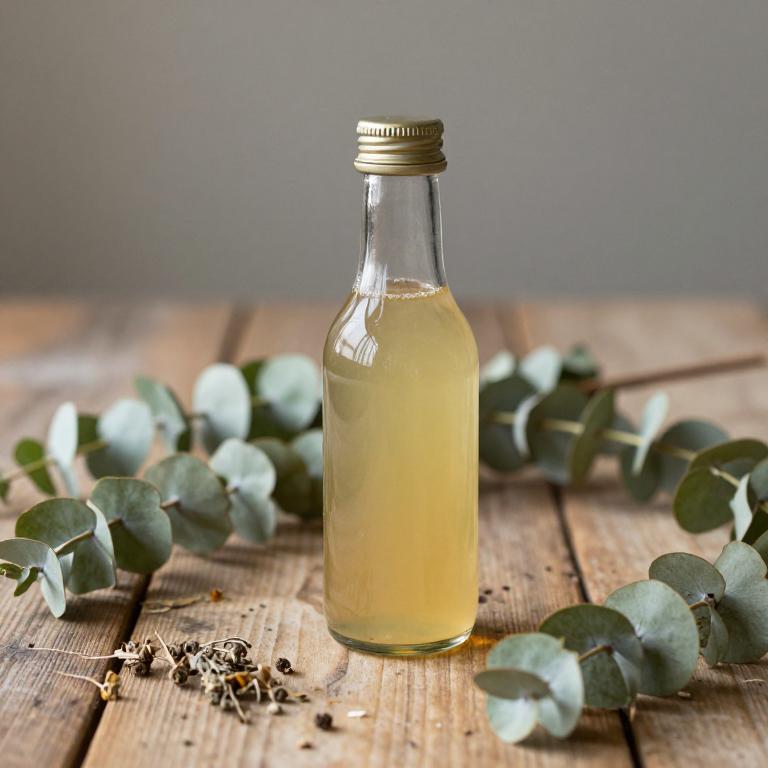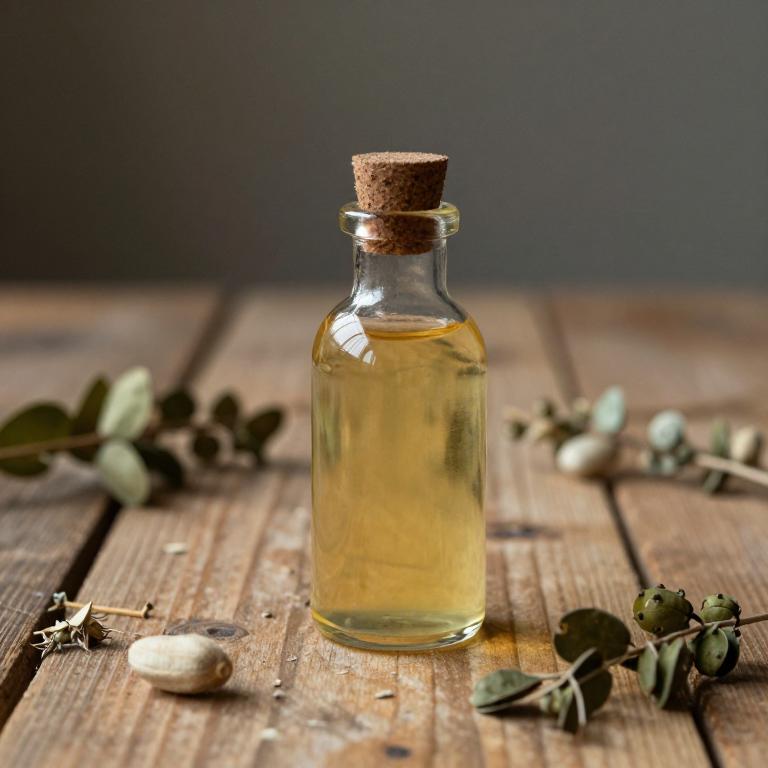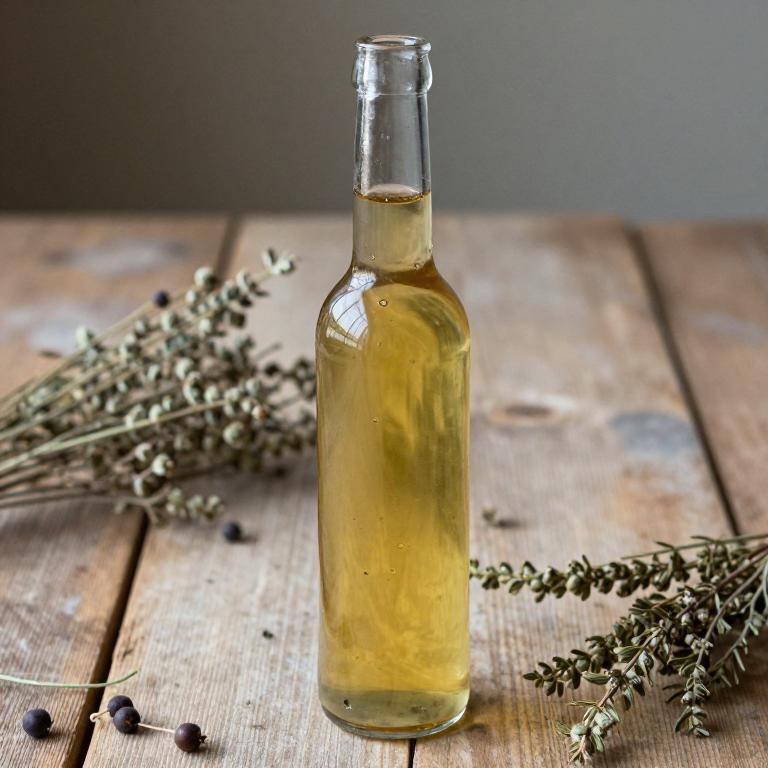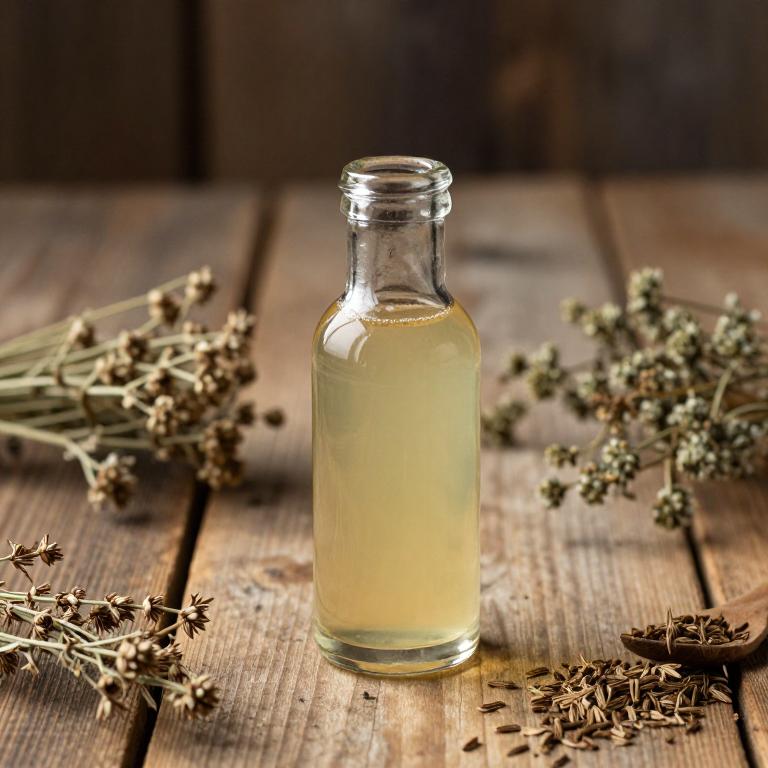10 Best Herbal Juices For Tooth Decay

Herbal juices have gained attention as natural alternatives for supporting oral health and preventing tooth decay.
Certain herbs, such as neem, clove, and turmeric, are believed to possess antimicrobial and anti-inflammatory properties that can help reduce plaque and bacterial growth. These juices may help remineralize teeth by providing essential nutrients like calcium and fluoride, which strengthen enamel. However, while some studies suggest potential benefits, more scientific research is needed to confirm their effectiveness compared to traditional dental care methods.
It is important to consult with a dentist before relying solely on herbal juices for preventing tooth decay.
Table of Contents
- 1. Salvia (Salvia officinalis)
- 2. Eucalyptus (Eucalyptus globulus)
- 3. Ginger (Zingiber officinale)
- 4. Black pepper (Piper nigrum)
- 5. Aloe vera (Aloe barbadensis)
- 6. Ceylon cinnamon (Cinnamomum verum)
- 7. Oregano (Origanum vulgare)
- 8. Turmeric (Curcuma longa)
- 9. Cumin (Cuminum cyminum)
- 10. Licorice (Glycyrrhiza glabra)
1. Salvia (Salvia officinalis)

Salvia officinalis, commonly known as sage, has been traditionally used for its medicinal properties, including its potential role in preventing tooth decay.
The herbal juice extracted from sage leaves contains compounds such as flavonoids and essential oils, which exhibit antimicrobial properties that can inhibit the growth of bacteria responsible for dental caries. Studies suggest that sage juice may help reduce plaque formation and neutralize acids in the mouth, thereby protecting tooth enamel. Additionally, its astringent properties may help in reducing gum inflammation and promoting oral hygiene.
While more research is needed, incorporating sage-based herbal juices into a daily oral care routine may offer natural support in preventing tooth decay.
2. Eucalyptus (Eucalyptus globulus)

Eucalyptus globulus, commonly known as eucalyptus, has been explored for its potential benefits in preventing tooth decay due to its antimicrobial and anti-inflammatory properties.
The essential oils derived from this plant contain compounds like cineole and terpinene, which can inhibit the growth of bacteria such as Streptococcus mutans, a primary contributor to dental caries. Some herbal juices made from eucalyptus leaves have been used traditionally to freshen breath and reduce plaque formation, though more scientific research is needed to confirm their efficacy in preventing cavities. While these juices may offer some oral health benefits, they should not replace regular dental hygiene practices like brushing and flossing.
It is important to consult a healthcare professional before using eucalyptus-based products for dental care, especially for individuals with allergies or existing health conditions.
3. Ginger (Zingiber officinale)

Zingiber officinale, commonly known as ginger, has been traditionally used for its medicinal properties, including its potential benefits for oral health.
Ginger contains bioactive compounds such as gingerol and shogaol, which possess antimicrobial and anti-inflammatory effects that may help reduce harmful bacteria in the mouth. Some studies suggest that incorporating ginger into herbal juices could help prevent tooth decay by inhibiting the growth of Streptococcus mutans, a primary cause of dental caries. However, while ginger may support overall oral hygiene, it should not replace proper dental care, including regular brushing, flossing, and professional check-ups.
As with any herbal remedy, it is advisable to consult a healthcare provider before using ginger-based products for dental health.
4. Black pepper (Piper nigrum)

Piper nigrum, commonly known as black pepper, contains compounds like piperine that have antimicrobial properties, which may help in reducing harmful bacteria in the mouth.
These properties suggest that black pepper could be beneficial in preventing tooth decay by inhibiting the growth of Streptococcus mutans, a primary contributor to dental caries. Some traditional herbal remedies use black pepper in the form of herbal juices to promote oral health and freshen breath. However, while preliminary research shows promise, more scientific studies are needed to confirm its effectiveness in preventing tooth decay.
It is important to consult a dentist before using any herbal remedies as part of a dental care routine.
5. Aloe vera (Aloe barbadensis)

Aloe barbadensis, commonly known as aloe vera, has been traditionally used for its soothing and healing properties, and recent studies suggest that its herbal juices may offer benefits in preventing tooth decay.
The gel from the aloe plant contains enzymes, antibacterial compounds, and polysaccharides that can help reduce harmful bacteria in the mouth, such as Streptococcus mutans, which are major contributors to dental caries. When used as a mouth rinse or incorporated into dental care routines, aloe vera juice may help remineralize enamel and reduce plaque buildup. However, it is important to note that while aloe vera shows potential as a complementary therapy, it should not replace professional dental care or standard oral hygiene practices.
Further research is needed to fully understand its efficacy and long-term effects on oral health.
6. Ceylon cinnamon (Cinnamomum verum)

Cinnamomum verum, commonly known as true cinnamon, contains essential oils and bioactive compounds that have been studied for their potential role in preventing tooth decay.
The active component cinnamaldehyde exhibits antimicrobial properties that can inhibit the growth of bacteria such as Streptococcus mutans, which are primary contributors to dental caries. Incorporating cinnamon-infused herbal juices into daily oral hygiene routines may help reduce plaque formation and acid production in the mouth. However, while some preliminary research suggests benefits, more clinical studies are needed to confirm its efficacy as a standalone treatment for tooth decay.
As with any natural remedy, it is advisable to consult a dental professional before relying solely on cinnamon-based products for oral health.
7. Oregano (Origanum vulgare)

Origanum vulgare, commonly known as oregano, contains essential oils and phytochemicals that have demonstrated antimicrobial properties, making it a potential natural remedy for preventing tooth decay.
The active compounds, such as carvacrol and thymol, inhibit the growth of bacteria like Streptococcus mutans, which are primary contributors to dental caries. Incorporating oregano-based herbal juices into daily oral care routines may help reduce plaque formation and acid production in the mouth. However, while preliminary studies show promise, more clinical research is needed to confirm its efficacy and safety for long-term use in dental health.
As with any herbal remedy, it is advisable to consult a healthcare professional before using oregano-based products for oral care.
8. Turmeric (Curcuma longa)

Curcuma longa, commonly known as turmeric, contains curcumin, a powerful antioxidant and anti-inflammatory compound that has been studied for its potential benefits in oral health.
Research suggests that curcumin may help reduce plaque formation and inhibit the growth of bacteria that contribute to tooth decay, such as Streptococcus mutans. Incorporating turmeric into herbal juices can provide a natural alternative to conventional mouthwashes, offering a mild yet effective way to support dental hygiene. However, it is important to note that while turmeric may complement oral care routines, it should not replace professional dental treatments.
Consistent use of turmeric-based herbal juices, combined with good oral hygiene practices, may contribute to the prevention of tooth decay and the maintenance of healthy gums.
9. Cumin (Cuminum cyminum)

Cuminum cyminum, commonly known as cumin, has been traditionally used in herbal remedies for its potential benefits in oral health.
While cumin itself is not a juice, it can be incorporated into herbal juices that may support dental health by promoting saliva production and reducing bacterial growth. These juices often combine cumin with other beneficial ingredients like ginger, turmeric, and lemon to enhance their antimicrobial properties. Regular consumption of such herbal juices may help in preventing tooth decay by reducing plaque and neutralizing acids in the mouth.
However, it is important to note that these juices should complement, not replace, proper dental hygiene practices and professional care.
10. Licorice (Glycyrrhiza glabra)

Glycyrrhiza glabra, commonly known as licorice root, has been traditionally used in herbal medicine for its various health benefits, including its potential role in preventing tooth decay.
The herb contains compounds like glycyrrhizin and flavonoids, which exhibit antimicrobial properties that can inhibit the growth of bacteria such as Streptococcus mutans, a primary contributor to dental caries. When used in the form of herbal juices, glycyrrhiza glabra may help reduce plaque formation and neutralize acids in the mouth, thereby protecting tooth enamel. However, excessive consumption of licorice root juice can lead to side effects such as hypertension and electrolyte imbalances, so it should be used with caution.
Overall, while licorice root juice shows promise as a natural aid in oral health, further scientific research is needed to fully understand its efficacy and safety in preventing tooth decay.